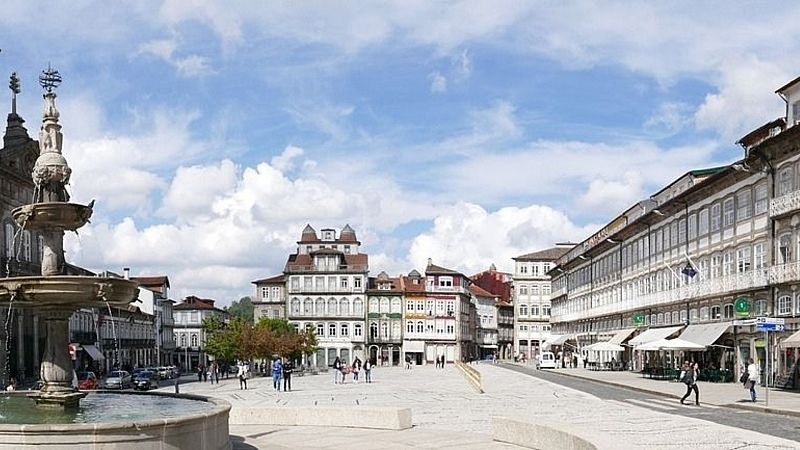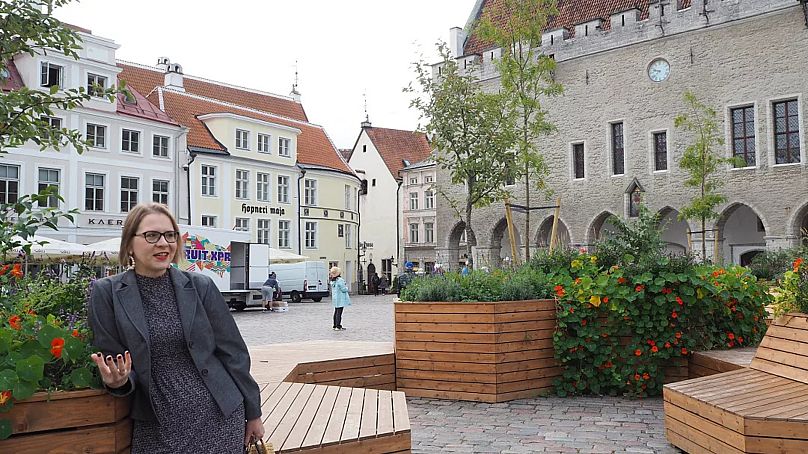What the European Green Capital award for 2026 could mean for the Portuguese city of Guimarães

It has been announced that Guimarães in Portugal will be the European Green Capital for 2026.
The city stood out for its continued commitment to sustainable development, with remarkable results for air quality, noise, water, biodiversity, green areas and land use, waste and circular economy and climate change mitigation adaptation, according to the European Commission
The jury said that Guimarães demonstrated a vision that brings together citizens, academia and the private sector. The municipality's “One Planet City” motto was also praised for its approach that combines science with local planning.
Guimarães came out on top against the cities of Heilbronn in Germany and Klagenfurt in Austria. Outside of the main competition, Portugal scooped a second prize with Águeda winning the European Green Leaf alongside the city of Vaasa, in Finland.
The municipality of Guimarães will receive a prize of €600,000 to help increase environmental sustainability, while Águeda will receive €200,000 towards the same goal.
“The European Green Capital and European Green Leaf Awards are a recognition, but also a responsibility,” said Vice-President of the European Commission, Maroš Šefčovič when congratulating the winners.
“Cities are key players in advancing the green transition and I commend the continuous engagement of all participants in promoting a clean and healthy environment so that their citizens enjoy a better quality of life.”
Guimarães is a city in the northern Portuguese district of Braga that is home to around 156,000 people. Its historic town centre has been listed as a UNESCO World Heritage Site and, due to its role in the foundation of the country, is known as the ‘cradle of Portuguese nationality”.
What does Guimarães have planned?
The mayor of Guimarães, Domingos Bragança, thanked the city’s entire community “from the students of our schools to the Green Brigades, from the scientific community to the business” for being an essential part of this win.
“Everyone will be key to making 2026 another great moment of collective celebration for Guimarães.”
He also congratulated Águeda on its win and added that “there is no policy that will win unless the community moves towards sustainability together”.
Guimarães is one of three in Portugal that are part of the European Commission’s ‘Mission Cities’ initiative. These 100 cities are aiming to become climate-neutral by 2030 - 20 years ahead of the country’s national target.
The municipality says it will continue the revitalisation projects in the city and promote new initiatives with a view to climate neutrality until 2030, as well as initiatives for the improvement of land conditions, waste management and protection of biodiversity.
What could winning European Green Capital mean for Guimarães?
The European Green Capital Award was launched in 2010 by the European Commission with the aim of encouraging cities to become greener and cleaner while also improving the quality of life of their citizens. The Green Leaf award is designed to recognise the efforts of smaller cities with between 20 and 100 thousand inhabitants.
In 2021, the Estonian city of Tallinn was awarded the prize for 2023, giving it two years to prepare for its time in the sustainability spotlight.
“For me, Green Capital is an attitude,” explains Tallinn’s deputy mayor Vladimir Svet told Euronews Green when we visited the city last year.
“An attitude where you take decisions that are long-lasting, that might not be popular at the moment, but that are necessary for the city to cut emissions and to become a really green city.”
So what benefits did the award afford to Estonia’s only big city? Its approach was centred around bringing nature into the urban environment.
A ‘Green Tracks’ project was launched to introduce greenery to urban spaces all over Tallinn from bus stop roofs to traffic islands. Summer 2023 saw a complete makeover of the town square into a temporary park with wooden seating, flowers, saplings and even a free library.
Longer lasting was the creation of a 14-kilometre-long ‘Pollinator Highway’ through six of the city’s eight districts.
The effects of the award were clear in residents every day lives too from self-driving buses to green labelling in their favourite restaurants. Tallinn even cut out plastic completely at Estonia's annual Youth Song and Dance Festival.
“As a political cycle in Estonia is four years long, I always say that the title of the Green Capital has helped us to save four years that would go on the same decisions one way or another,” Svet said as Tallinn’s year with the title came to an end.
“But now we were able to make those decisions more smoothly, and it means that we have a chance in this race that the whole country, the whole region and maybe the whole world is now facing.”


